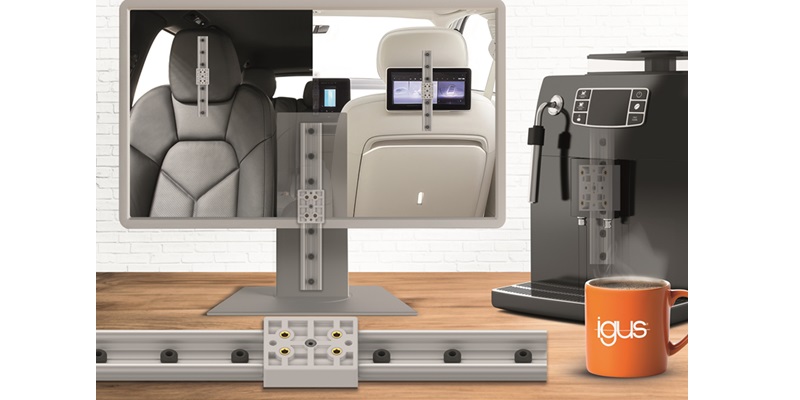Schedule a Call Back
India shows promising figures, forecasts predict solid economic growth
 Interviews
Interviews- Feb 20,23
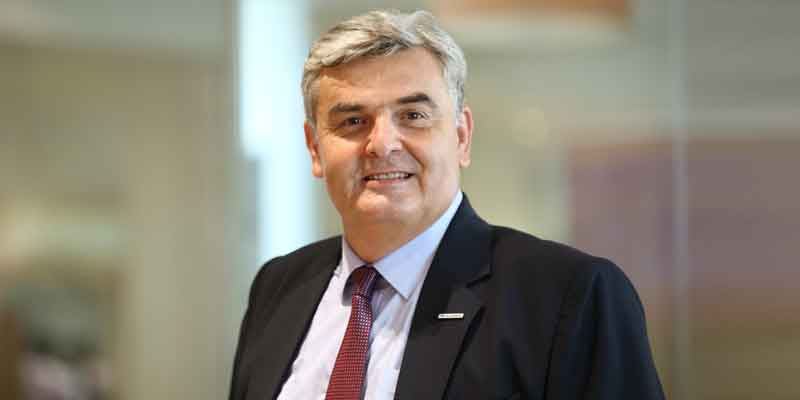
Freudenberg has business interests in various segments like automobile parts, textiles, building materials, specialty chemicals, lubricants, house wares and cleaning products, etc. As the Regional Representative for Freudenberg in India, what are your priorities?
Freudenberg offers customers excellent technological and innovative products as well as services. Innovation strength, strong customer orientation, and close collaboration as well as diversity and team spirit are the cornerstones of the group. Commitment to excellence, reliability, pro-active, and responsible action have belonged to the company’s core values ever since it was founded in 1849. The responsibilities of a regional representative and the team of our regional corporate center are clearly defined.
The Freudenberg Regional Corporate Center India (FRCCI) is a Freudenberg representation in India and supports the group’s business development. Eight business groups are doing business in India, and we are representing Freudenberg’s interest through interactions with the government (federal, state, and local authorities), and business & professional associations both, in Germany and India. We also work to strengthen the Freudenberg brand in India through appropriate internal and external communication. We are doing all this through our established internal functions and through external service providers and expertise.
We are somehow acting as an extended arm of the Freudenberg corporate functions which ensure the regional implementation and execution of global guidelines and standards. We develop India-specific approaches - where appropriate - in alignment with corporate functions (functional guidance, projects, audits, training, etc.) and we provide corporate support and corporate services for the local business groups including start-ups (including hosting) in the spirit to maximise the group‘s strength. The execution of appropriate leadership development and talent management is also on our agenda. It is also important to provide a platform for sharing and multiplying best practices among our divers’ businesses and functions and facilitate synergies within the business groups to enable business opportunities together. Finally, we execute Freudenberg real estate projects as the legal entity in India.
How have various business units of Freudenberg in India evolved over time? How are you gearing to tap the new opportunities in each of these business segments?
Freudenberg’s journey in India lasted almost one century. I am proud that during my fifteen years in India, I could contribute to some major plant projects like Freudenberg Chemical Specialties, Mysore, Freudenberg Sealing Technologies, Freudenberg-NOK, Chennai, and Vibracoustic and Freudenberg Sealing Technologies, Freudenberg-NOK, Chand?garh. Nevertheless, I feel maintaining the success factors which made Freudenberg so successful in India over so many years of operation and which will give Freudenberg an even better opportunity for future success could be seen as significant milestones as well.
We are operating 15 manufacturing plants in six Indian states, so we have some good flavor of what is happening at the ground level, therefore all success factors are what we see as a solid and are a basis for sustainable success mentioned, more than praxis proofed:
In India, how are massive capital investments in infrastructure, power, railways or metros, electric vehicles, renewable energy, modernisation of industries, etc leading to an increase in demand for Freudenberg’s products and solutions?
Without Freudenberg, indoor air would not be as clean, cars would not drive, and wounds would not heal as quickly, and these are just three examples from the thousands of applications. When technology, complex processes, and sophisticated products work reliably, Freudenberg is often behind it. We support five markets, 40 market segments, and thousands of applications with seals, vibration control components, technical textiles, filters, specialty chemicals, medical products, the most modern cleaning products, and many more products.
We provide (often hidden) high performance and high tech, while also being in the midst of life – a normal day is almost unthinkable without Freudenberg. We use our long-term material, system, and technology competence along with the expertise of specialists around the world to develop leading products, excellent services, and forward-looking solutions and innovations. Our long-term material, system, and technical competence is a key that always opens new doors for us to new markets, innovative products and solutions. Innovations create a competitive advantage. As a technology group and development partner, we see things from our customer’s perspectives and help them succeed.
Every investment in our five major supported markets—mobility and transport, energy and resources, industry and production, healthcare and food processing, and cleaning and textiles, will push and demand support and solution from Freudenberg products. Fortunately, we also see more and more of a shift from a demand for commodities towards a demand of specialties.
What are your views on the present status of the Indian manufacturing industry?
India continues to show promising figures. The country’s forecasts predict solid economic growth and inflation rates within acceptable levels. All economic indicators focusing on manufacturing estimate a very solid and sustainable development in India, also for the next FY. Private consumption is robust and sustainable; however, strategic investments still leave a lot to be desired (despite a new commitment in the budget).
From a German perspective, two issues are the most important at the moment – infrastructure and trade deficit. Infrastructure has to be improved significantly to strengthen the competitiveness of India’s manufacturing industry. Despite the rapid economic growth, India still has a long way to go to catch up with other industrialised nations.
The expanding trade deficit also needs to be reduced, hopefully, by increasing exports. The focus should be increased more on the importance of trade agreements and creating the right framework for the implementation of investment activities. This will result in an influx of new investors and the expansion of the manufacturing sector.
Compared with other countries, the economic dynamic will be above average. Based on the indicators we see how this could last for several more years. However, the GDP growth will not be sufficient to considerably improve the wealth (and living and consumer conditions and behaviors) of the huge and very young population.
What factors will propel the growth of the Indian manufacturing sector in the coming years?
India is the youngest-connected-democracy in the world and is increasingly being considered as preferred partner in manufacturing across industries. European companies are beginning to realise that India is more than just a consumption market. As a Past President of the Indo-German Chamber of Commerce, I am happy that this is true for all German companies as well.
India is a manufacturing and R&D hub that allows foreign companies to create and export products to other markets in this region. However, the country is not overly involved in international trade. On the one hand, this makes it comparatively resilient against international supply chain struggles. On the other hand, this limits its gains from the export business.
We also need to temper optimism with facts - while the ease of doing business, transparency, and e-governance has shown considerable improvement, skills development, and technical training need further investment. It will take some time. Product requirements and business characteristics differ considerably from other countries and regions. Thus, India is difficult to market for international players as global products are often not suitable or accepted. It will take time till India is ready to pay for the value addition high qualitative products generate. India is very price-sensitive and local competition always tries to deliver cheaper solutions. India means ‘patience’ and ‘relations’. Always have this in mind.
What is your ‘vision’ for the Indian Manufacturing Sector – from a German perspective?
India clearly is a market to be in – currently and in the future. If you are not yet there, it could be too late. India and Germany are natural partners, both are committed to free global trade, we have a shared interest in sustaining a rules-based multilateral trading system, and we fulfill our responsibility to promote peace, democracy, the rule of law and respect for human rights. India is a land of opportunities for German companies. Despite the challenges of working in India, German companies are convinced of the long-term Indian opportunity, with its young and well-educated population, and its evolution as an IT and R&D powerhouse.
The opportunity to ‘Make in India’, and to merge domestic production and consumption with global supply chains, make India an active manufacturing hub placed at the heart of global value chains. The ease of doing business, transparency, and e-governance have shown considerable improvement, and we see continued efforts to enhance skills development and technical training needs. However, infrastructure is still lacking world-class standards. As Germans, we should remember our very successful business model ‘Mittelstand’. This model includes the following principles, such as:
Nevertheless, a successful strategy needs to reflect India’s complexity. Despite all the opportunities, India requires a tailor-made strategy for your activities and investments. You have to be committed to the country, and you have to show respect for the country, its values, and its people. In India, you have to be ready for a long-term commitment. Short-term strategies and commitment do not work. India is time-consuming. Implementing business development strategies successfully adopted in other countries may not be met with the same and/or desired results in India. Your strategy must be India-specific. This includes employee relocation or transfer to India. Make sure the person is well briefed regarding the cultural and business environment and is ready to perform in line with the business expectations within the Indian market. Otherwise, you may be met with underperformance issues on the part of the employee, irrespective of the strong indicators observed with that person’s performance in the previous country of employment. I know of several instances where that was the case.
In all your activities for and in India, you need to adopt an attitude of ‘patience and relations’. Your goals should include long-term commitment. Do not try to impose values and principles practiced in other countries, show respect, and support business transparency. Be ready for change and the need to adapt to market and customer needs immediately. Make corporate social responsibility a part of your company strategy and focus on creating sustainable business processes. If you are yet to consider setting up operations in India, you should get the ball rolling now. The clock is ticking, and if you don’t act now, you may be too late.
What are your long and short-term growth plans for your group companies in India? – For example, maybe, with respect to capacity expansion, sales targets, launching new products or solutions, diversification, exports, R&D, etc.
Freudenberg intends to continue investing in long-term projects. The changes in mobility, digitalisation, and sustainability solutions will continue to remain important strategic topics. The pace of technological and digital change continues to accelerate, especially the fundamental transformation of the automotive industry, driven by electro-mobility. The macroeconomic environment in 2023 - and years to come - will remain challenging. The Corona pandemic has added to this. Geopolitical and economic uncertainties are unlikely to ease. Against this backdrop, businesses must be cautious in planning for the coming years and anticipate subdued business performance in automotive markets. As a supplier to the automotive industry, we depend on production from OEMs, globally and in our regional Indian market. In India, it is mainly driven by customer demand and global and local supply chains. Automotive is an important market but there is more in India.
With a constant focus on technology, the Freudenberg companies in India have diversified their operations, adopted flexible business strategies, and pursued opportunities across product lines to raise their profitability and grow their market share. They are innovators and leaders building a successful future for their employees, their customers, and their communities.
Related Stories

India eyes $3 trillion industrial opportunity by 2035
Omniscience Capital emphasised that higher domestic consumption—fuelled by rising per capita income—and India’s target of $1 trillion in merchandise exports by 2030 will be major growth driver..
Read more
PLI schemes have had a major impact on several Indian sectors: Abhishek Malik
By encouraging domestic manufacturing, these programs have raised output, created jobs, and increased exports. Additionally, they have drawn large investments from both domestic and international fi..
Read more
Goa’s first electronics manufacturing cluster nears completion
Spanning over 597,000 square metres near the Goa-Mumbai National Highway, the EMC will offer various incentives to incoming companies through support from both the state government and the Ministry ..
Read moreRelated Products
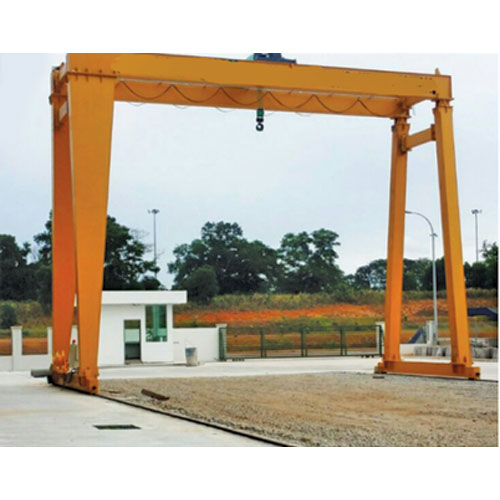
Heavy Duty Goliath Crane
Ganesh Engineering Co manufactures and supplies a broad array of heavy-duty goliath crane.
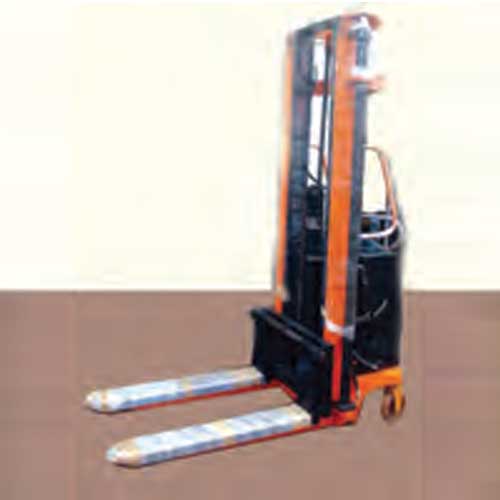
Hydraulic Stackers
Rana Material Handling Equipments is a
manufacturer and supplier of hydraulic stackers.
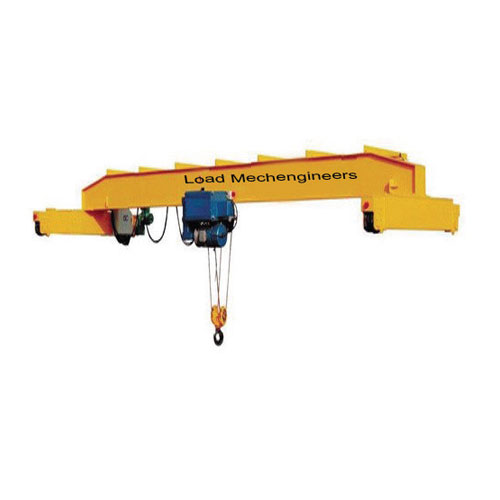
Eot Cranes
Loadmech Engineers offers a wide range of single girder EOT
cranes.






